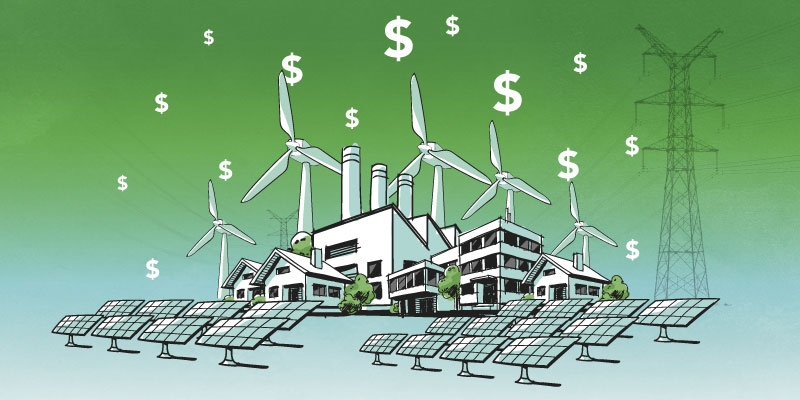Poor policies largely to blame for Ontario’s skyrocketing electricity prices
Poor energy policy choices — including Ontario’s Green Energy Act — have increased electricity prices for residents, cost tens of thousands of manufacturing workers their jobs and produced only minimal health and environmental benefits, finds a new collection of essays released today by the Fraser Institute, an independent, non-partisan Canadian public policy think-tank.
“Ontario is a prime example of how not to manage energy policy—extreme government interference in the electricity market has made life more unaffordable for Ontarians and damaged the province’s economy,” said Kenneth Green, senior director of natural resource studies at the Fraser Institute and a contributing author of Understanding Changes in Ontario’s Electricity Markets and Their Effects.
Among the policies that have created Ontario’s electricity crisis is phasing out coal-power generation, granting wind and solar generators long-term guaranteed contracts above market prices, and the so-called Global Adjustment charge that, in part, actually pays generators not to produce any power.
These policies have hurt Ontario residents and the economy in several ways:
- Residential electricity costs increased 71 per cent between 2008 and 2016, more than double the national average increase of 34 per cent.
- In 2016, Toronto residents paid, on average, $60 more a month for electricity than the average Canadian.
- Large industrial users in Toronto saw electricity prices jump 46 per cent between 2010 and 2016, while the average increase in electricity costs for the rest of Canada was only 14 percent for large industrial users.
- Ontario’s high electricity prices reduced employment in manufacturing by some 75,000 jobs between 2008 and 2015.
And crucially, research has shown the Green Energy Act has not produced the environmental or health benefits, nor the so-called “green jobs” that advocates and the government promised.
“The recent history of electricity in Ontario has been pain without gain for residents and businesses alike,” said Ross McKitrick, Fraser Institute senior fellow and economics professor at the University of Guelph.
“Policymakers need to fully understand the nature of the bad policy decisions and their full effect before they can craft meaningful reforms that will actually lower hydro prices.”

























